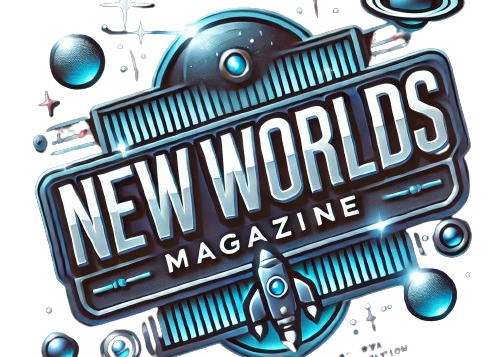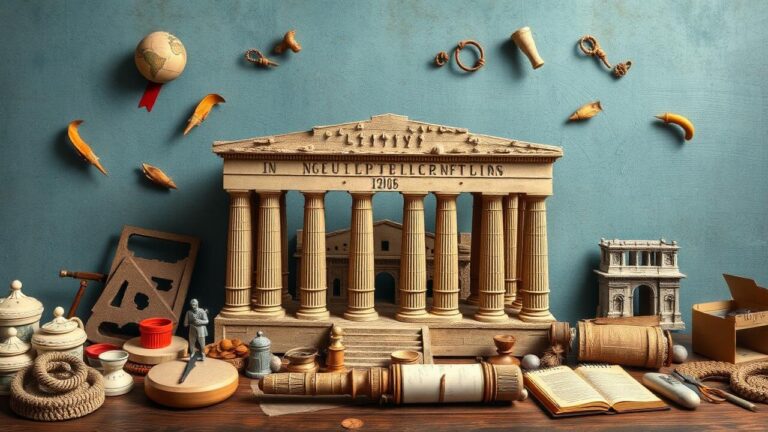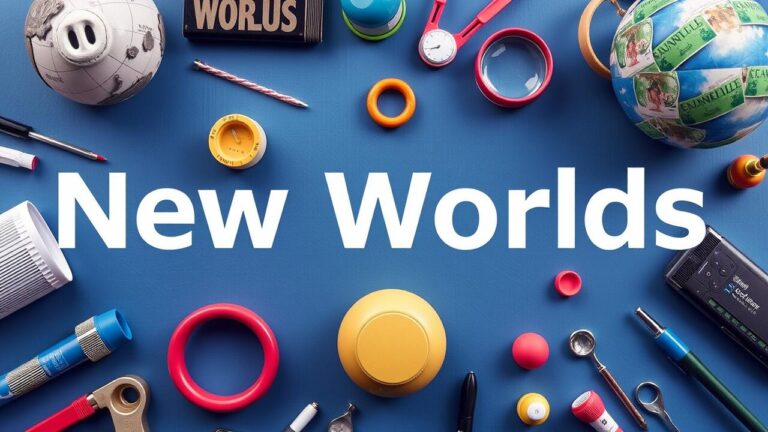Table Of Contents
Reviewing the Impact of Historical Figures on Society and Their Lasting Legacy
Key Takeaways
- Examining the influence of notable personalities on communities and grasping their significance.
- Examples of impactful prominent individuals throughout history.
- The contribution of distinguished figures to cultural evolution.
- Evaluating the heritage left by significant historical personalities.
- Views on how history is understood and represented.
- Consequences of historical research on education systems.
Reviewing The Impact Of Historical Figures On Society | Understanding Historical Figures and Their Relevance
Reviewing the Impact of Historical Figures on Society requires a comprehensive approach through historical analysis. Historians play a crucial role in uncovering the complexities of societies and the influential figures within them. Each civilization contributes unique narratives, and oral historians often preserve these stories, enriching our understanding of the past. The histories of slavery serve as poignant reminders of how figures, whether leaders, reformers, or cultural icons, shaped societal values. Through both scholarly works and historical fiction, the impact of these historical figures resonates through time, influencing contemporary perspectives and encouraging ongoing dialogues about their relevance in today’s world.
- Historical figures often embody the values and ideologies of their time, which can serve as a reflection of societal norms.
- Their actions and decisions can lead to significant societal changes, whether through reforms, revolutions, or cultural movements.
- Many historical figures face controversy, highlighting the complexities of their legacies and prompting diverse interpretations.
- Educating future generations about these figures helps foster critical thinking and encourages discussions about ethics and morality.
- The stories of historical figures can inspire activism and social change in the present day.
- Analyzing their impact can provide lessons on leadership, resilience, and advocacy that remain relevant across different contexts.
- Understanding the contributions of diverse historical figures enhances a more inclusive narrative of history.
Reviewing the Impact of Historical Figures on Society | Defining Historical Figures in Context
Defining historical figures involves understanding their roles within the context of their times. Reviewing the Impact of Historical Figures on Society requires recognizing how these individuals shaped civilization through their actions and ideas. During the renaissance, for example, artists and thinkers gained prominence, marking a shift in cultural and intellectual traditions. Politicians and reformers arose during the colonial period, influencing nations and the trajectory of history. The effects of these figures often unfold over generations, providing insight into the evolution of societal values and the complexities of African American history.
Historical figures often emerge from significant movements, reflecting the societal norms and struggles of their eras. The past informs modern interpretations of traditions and establishes frameworks for understanding the evolution of ideals. Reviewing the Impact of Historical Figures on Society also involves examining how modernization changed the landscape of various civilizations. The history of religions offers a lens through which we can analyze the motivations and legacies of these influential personalities. By situating these figures within their specific contexts, we gain a deeper appreciation for their contributions and the lasting impressions they left on society.
The Evolution of Societal Values Through Time
Societal values have undergone significant transformations, influenced by various historical figures whose actions spurred revolutions and shifts in cultural heritage. Reviewing the Impact of Historical Figures on Society reveals how abolitionists and reformers challenged established norms, paving the way for advancements in democratic society. Museums and oral history play pivotal roles in preserving these narratives, allowing future generations to understand how cultures evolve over time. Research into different civilisations provides insight into the intricate tapestry of beliefs, practices, and traditions that shape societal values.
Cultural evolution cannot be understood without recognizing the interplay of religious traditions and the contributions of iconic figures. The gazette serves as a historical record, documenting events and ideas that have altered the course of culture. Reviewing the Impact of Historical Figures on Society highlights the importance of these individuals in creating contemporary values. As societies progress, their cultural frameworks continue to adapt, reflecting the ongoing dialogue between past and present influences that define various cultures.
Case Studies of Influential Historical Figures
Exploring the lives and contributions of influential historical figures reveals significant insights into the political landscape and cultural development of societies. Reviewing the Impact of Historical Figures on Society allows us to dissect how literature and intellectuals have shaped societal norms, influenced attitudes, and prompted civic engagement among citizens. Archives rich with papers and documents serve as the foundation for understanding the complexities behind movements, such as those against slavery or in favor of civil rights. Myths surrounding these individuals often mask the reality of their struggles and triumphs, illustrating how their legacies extend beyond mere historical accounts. The interplay between politics and cultural background is essential in grasping the full scope of their impact.
Political Leaders and Their Lasting Influence
Political leaders are often at the forefront of societal change, influencing the direction of nations and shaping the lives of their citizens. Reviewing the impact of historical figures on society reveals how these leaders represent a confluence of inquiry into morals and ethics. Each historical figure’s actions and ideologies provide a lens through which we can explore historical perspectives. A comprehensive historical figure list helps highlight those who have left a profound mark, demonstrating that their influence can be both celebrated and critiqued based on varying historical experiences.
The historical purpose of political leadership often intertwines with a leader’s personal narrative, affecting the populace’s values and aspirations. As we delve into the lasting influence of these historical figures, it becomes essential to evaluate how their decisions resonate through time. These leaders not only shape their immediate environment but also set precedents that inform future governance. Analyzing their impact requires a careful balance of context and reflection, ensuring that the inquiry into their legacies remains relevant to contemporary society.
Pioneers in Social Reform and Change
Pioneers in social reform have played a crucial role in shaping the historical reality of their times. By challenging the status quo, these influential figures instigated significant historical change that reverberated through society. Their actions and ideologies are critical to historical study, allowing us to explore how their contributions molded public perception and policy. Through careful historical investigations, scholars analyze the impact of these figures, drawing upon historical sources and evidence to build comprehensive historical figure profiles. The historical importance of these reformers underscores the need for a deeper historical understanding of social movements.
The legacies of social reform pioneers are evident in many historical events that continue to influence modern society. By reviewing the impact of historical figures on society, we gain insights into the methodologies of change and the complexities of human behavior throughout history. The lessons derived from these historical practices help illuminate the challenges faced in advocating for social progress. As new historical evidence emerges, it further enriches our understanding of past movements, enabling us to recognize patterns and draw connections to contemporary issues. Each historical figure profile serves as a reminder of the potential for individuals to enact meaningful change within their communities.
| Name | Contribution | Time Period | Significant Achievement |
|---|---|---|---|
| Harriet Tubman | Abolition of slavery | 1820s-1913 | Led the Underground Railroad |
| Martin Luther King Jr. | Civil Rights Movement | 1950s-1968 | Delivered the “I Have a Dream” speech |
| Susan B. Anthony | Women’s Suffrage | 1820s-1906 | Founded the National Women’s Suffrage Association |
| Nelson Mandela | Anti-Apartheid Movement | 1918-2013 | First Black President of South Africa |
| Mahmoud Mohammed Taha | Social Justice in Sudan | 1909-1985 | Promoted religious tolerance and women’s rights |
The Role of Historical Figures in Cultural Development
Cultural development has always been intertwined with the contributions of historical figures, shaping the narratives that define past societies and their legacies. Reviewing the Impact of Historical Figures on Society allows us to uncover how artists and intellectuals have influenced cultural norms and values throughout various historical periods. These figures serve as a historical foundation, providing insights into human history and the complexities of world history. Their work often sparks historical revision, revealing patterns and conflicts that resonate with modern history. Many historians emphasize the importance of public history in understanding these influences, as the interpretations of cultural development can lead to enriched historical presentations that reflect diverse perspectives. Through this lens, we can appreciate how the legacies of these individuals continue to inform and shape contemporary society.
Artists and Intellectuals Who Shaped Society
Art has served as a reflection of society’s values and struggles throughout the centuries. Numerous historians emphasize how artists and intellectuals influence the cultural landscape. Reviewing the Impact of Historical Figures on Society reveals that movements in art can often lead to broader societal changes. Historical representation in artistic works allows viewers to explore diverse narratives, assisting in enhancing their understanding of past events. Family historians contribute to this understanding by documenting how art has shaped their lineage, creating a dialogue between history and personal identity.
The interplay of creativity and intellect often drives societal progress. The history course of intellectuals who challenged norms can illuminate paths toward enlightenment and reform. Reviewing the Impact of Historical Figures on Society demonstrates that these contributions are not fleeting; they hone critical thinking and spark innovation. Historical learning experiences provide insights into how art and thought have continuously shaped societies. As history shapes contemporary discourse, the legacy left by artists and intellectuals remains vital to understanding the world today.
Contributions to Science and Technology
Famous figures in the realm of science and technology have significantly shaped societies throughout history. Reviewing the Impact of Historical Figures on Society reveals how these individuals challenged existing norms and sparked innovation. From medieval inventors to contemporary scientists, their contributions have paved the way for developments we often take for granted today. Public history courses often highlight the importance of understanding historical antecedents and how past events influence modern societies, enriching our historical identity.
History books frequently celebrate the achievements of renowned scientists and inventors who established foundations for future discoveries. These contributions extend beyond mere inventions; they reflect the evolution of thought that drives progress in modern society. By exploring historic sites connected to these famous figures, learners can appreciate how their work transformed American history and laid the groundwork for advancements that benefit us today. Reviewing the Impact of Historical Figures on Society allows for a deeper understanding of how these legacies remain relevant in shaping the world around us.
Analyzing the Legacy of Historical Figures
Understanding the legacy of historical figures involves a multifaceted approach, which entails reviewing the impact of historical figures on society and analyzing how their contributions have shaped contemporary thought. Different perspectives history affords allow us to appreciate how societal values have evolved, particularly since the 19th century. As we study historic sites and mark histories, the historical pendulum swings to demonstrate how these figures influence public discourse and community identity. Recent trends in history department curriculum and history enrollment figures indicate a growing interest in how past events and historical memory inform our present. History paints a vivid portrait of figures whose actions resonate through time, illustrating how the dialogue on these legacies is where public history meets academic inquiry.
Methods for Evaluating Historical Impact
Evaluating the impact of historical figures requires a multifaceted approach. Scholars often emphasize the significance of revolutionary modernization that occurred during the 18th century and 19th-century events. By examining public history scholarship, researchers trace how prominent leaders and thinkers influenced societal changes over the decades. Many history programs offer comprehensive history programs that focus on these pivotal moments in time, allowing students pursuing a history degree to gain insight into the legacies of these figures. This understanding enriches the discourse surrounding historical narratives and presents a broader view of the past.
Another essential method involves facilitating audience access to history through various mediums and platforms. Over the past few decades, historians have employed diverse methodologies to engage the public and make historical figures more relatable. The study of 18th-century revolutionaries, for instance, serves as a focal point for understanding the complexities and nuances of their influence. Scholars strive to connect past events with current societal issues, reinforcing the importance of reviewing the impact of historical figures on society. This ongoing dialogue not only deepens comprehension but also highlights the relevance of history in shaping modern perspectives.
The Continued Influence on Modern Society
Historical figures have a profound and lasting impact on modern society. Reviewing the Impact of Historical Figures on Society reveals how the legacies of past leaders shape contemporary governance and citizenship history. For instance, the founding documents of democratic societies often draw inspiration from earlier medieval charters, reflecting efforts to establish rights and freedoms. Biographies of these influential individuals serve as valuable resources, connecting present-day values to previous events and highlighting the importance of public history education and investments that foster a deeper understanding of our collective heritage.
The ways in which historical narratives are interpreted directly affect public discourse and identity. History opens avenues for critical discussions about the values learned from past efforts today. By engaging with the legacies of influential figures, society can better understand the impact these personas have on civic engagement and cultural evolution. As historians continue to analyze previous events, their insights contribute to a richer appreciation of how historical legacies inform our present, emphasizing the relevance of Reviewing the Impact of Historical Figures on Society in shaping contemporary perspectives.
| Historical Figure | Contributions | Legacy Impact |
|---|---|---|
| Nelson Mandela | Anti-apartheid activism, promoting equality | Inspired global human rights movements |
| Martin Luther King Jr. | Civil Rights leadership, nonviolent protest | Influenced modern social justice movements |
| Abraham Lincoln | Abolition of slavery, preservation of the Union | Shaped ideas of democracy and equality |
| Marie Curie | Pioneering research in radioactivity | Advanced women’s contributions in science |
Perspectives on the Interpretation of History
Understanding the impact of historical figures involves examining their heritage and the cultural changes they inspired across generations. Many scholars focus on reviewing the impact of historical figures on society, recognizing how accomplishments and trends from the past continue to shape the present. An inclusive world history allows for a broader interpretation that includes immigrant history, highlighting the global significance of diverse narratives. Such studies reveal how history benefits careers by providing context for contemporary issues, encouraging new perspectives that resonate with current and future generations. Emphasizing various viewpoints enriches our understanding of history and its relevance to today’s society.
- Acknowledging the contributions of marginalized groups provides a more comprehensive view of history.
- Studying differing narratives helps challenge dominant historical perspectives.
- The interpretation of history can influence cultural identity and solidarity among communities.
- Recognizing historical events from multiple perspectives fosters empathy and understanding.
- Interdisciplinary approaches can enhance historical interpretation, incorporating insights from sociology, anthropology, and more.
- Continuous examination of history allows for the correction of historical inaccuracies and the inclusion of overlooked events.
- Engaging with history encourages critical thinking skills that can be applied to modern-day dilemmas.
The Importance of Diverse Narratives
Diverse narratives play a crucial role in reviewing the impact of historical figures on society. Many contemporary people grapple with the legacies left by influential thinkers from the 18th-19th centuries. Statues of these figures often ignite debates in modern nations, highlighting how perceptions shift with societal values. Understanding the history of revolutionary movements and reforms provides insight into how these leaders shaped the empires of their time. Such discussions are essential for those pursuing history degrees, as they foster a more nuanced understanding of the complexities of historical impact.
The complexity of history cannot be fully appreciated without acknowledging the varied perspectives that exist. Modern world events often echo the lessons learned from the 20th century matter, making it imperative to include voices that have been historically marginalized. By doing so, we can better comprehend the dynamics of power and resistance that characterized the eras of the past. Reviewing the impact of historical figures on society requires a multifaceted approach, ensuring that the narratives represent the diverse experiences that have contributed to today’s world.
The Role of Historians in Shaping Understanding
Historians play a crucial role in Reviewing the Impact of Historical Figures on Society. They sift through traditional sources to piece together narratives that reflect not only important events but also the values of their own society. By examining past successes and failures, they establish connections between historical figures and the trends that shaped humanity over the years. This analysis often highlights the ancient chain of influence that connects various societies through time, providing context for the decisions and actions of these significant figures.
The interpretation of history is influenced by the perspectives and biases of historians. Their work illuminates how concepts of justice and humanity have evolved, rooted in the context of the times in which these figures lived. Through rigorous research and critical thinking, historians help society understand how the actions of these individuals resonate in contemporary issues. As they dissect the motivations and consequences of historical figures, they enable us to appreciate not only their contributions but also the lessons learned from the past.
Educational Implications of Historical Studies
Understanding the educational implications of historical studies is crucial for conveying the lasting influence of historical figures on contemporary society. Reviewing the Impact of Historical Figures on Society allows students to engage with the achievements and reform movements that shaped various civilizations, such as the contributions of abolitionist women and their roles in revolutionary movements. General reflections on world culture and the legacies of these figures raise important discussions about problematic statues and recent acts of reevaluation by governments. This context informs not just classroom learning but also the work of historic-site tour guides, who play a vital role in bringing history to life. Through these lenses, education serves as a bridge between past and present, fostering a deeper understanding of the complexities inherent in our shared history.
Conclusion
Reviewing the Impact of Historical Figures on Society allows us to connect the nuances of historical events with contemporary issues faced by ordinary people. This exploration highlights how national narratives are shaped, reflecting a plural society where diverse experiences and perspectives intertwine. The cultural implications of historical figures, especially during transformative periods like the Civil War era, demonstrate their lasting influence on societal values and norms. An appreciation for these figures fosters deeper understanding of how the past makes its mark on the present, offering insights that resonate within our current context.
FAQS
How do historical figures like 18th century revolutionaries reflect the historical influence of various civilizations on the modern world?
Historical figures such as 18th century revolutionaries demonstrate the historical influence that has shaped our current society. Their actions and ideologies contributed to significant historical patterns and conflicts that assisted in abolishing the history of slavery and enhancing public knowledge. This allows audiences to access history in a meaningful way, leading to investments in public history that highlight the contributions of famous world leaders across various civilizations. Understanding these figures hones our historical knowledge, providing insights into the complexities of past societies.
In what ways can studying a historical figure enhance our understanding of historical conflicts and assist modern audiences in accessing the impact of various civilizations?
Studying a historical figure allows audiences to look deeper into historical conflicts, as it hones our perspective on how these events shaped society. By understanding the significance of specific figures, public history investments can be made to improve how history enhances the appreciation of various civilizations and their contributions to our world today.
How can a historical figure look influence our understanding of the past and assist audiences in accessing history?
A historical figure look can significantly enhance our understanding of different eras and cultural contexts. Studying such figures can assist audiences in accessing history by providing insights into how various civilisations interacted and shaped one another. This understanding hones our perspective on historical events and conflicts, revealing how they have impacted contemporary society.
How can the study of historical figures in different cultures assist audiences in accessing history effectively?
Studying historical figures from various cultures can greatly assist in providing audiences access to history, as it hones our understanding of diverse perspectives and events that shaped our world. This process allows audiences to access history with a more nuanced appreciation of its complexities.
How do historical figures help audiences access history and what role does this play in honing our understanding of events?
Historical figures serve as critical touchpoints that allow audiences to access history, making complex events more relatable and understandable. The study of these figures hones our grasp of historical narratives by providing context and personal stories that illustrate broader societal changes. This process not only assists audiences in accessing history but also enriches their comprehension of the past and its ongoing impact.
How do historical figures enhance our understanding of history and assist audiences in accessing the past?
Historical figures play a crucial role in enhancing our understanding of history as they symbolize pivotal events and movements. By examining their lives and contributions, we can gain insights into the complexities of the past. This understanding ultimately assists audiences in accessing history more effectively, as it hones our knowledge of societal developments and cultural shifts over time.
What are some ways to help audiences access history through the study of significant historical figures?
Studying significant historical figures can greatly assist audiences in accessing history, as their lives and actions often embody the complexities of the past. Historical figures can hone our understanding of societal changes and conflicts, making it easier for audiences to engage with and appreciate the multifaceted nature of history. They serve as relatable entry points that help audiences access history while emphasizing the lessons and influences that shape modern society.
How do significant historical figures help in understanding our society today, and what methods can be used to accurately teach about their contributions to history to assist learners?
Significant historical figures play a crucial role in shaping our understanding of history and assist learners in accessing the past. By studying their contributions, we can hone our critical thinking skills about historical events. Engaging teaching methods, such as discussions and multimedia presentations, further assist in making these historical connections clearer and more impactful for audiences, enabling them to grasp the complexities of history.
How do significant historical figures assist in shaping our understanding of history, and how does this influence our ability to analyze past events?
Significant historical figures assist in shaping our understanding of history by providing context and relatable narratives that engage learners, which hones their comprehension of the past. This deeper engagement with history assists in analyzing past events critically, facilitating a richer dialogue about their relevance in contemporary society.
How does studying significant historical figures help develop a deeper understanding of history while refining the skills that hone our analytical abilities?
The study of significant historical figures is essential in shaping our understanding of history as it allows individuals to analyze their contributions within various contexts. This exploration not only provides insights into past events but also hones critical thinking skills necessary for evaluating historical narratives. By examining the lives and impacts of these figures, learners can better appreciate how history shapes contemporary society.







